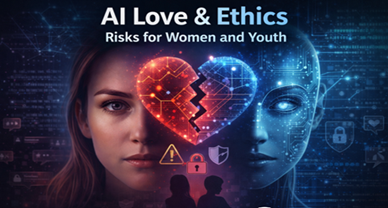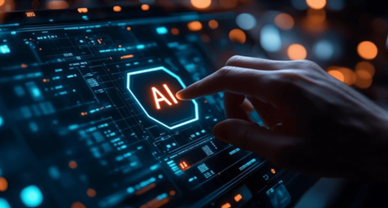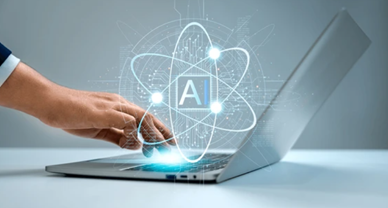A: A View from Intellectual Property Law- Do you really own the video games you buy? The legal truth behind game ownership in India
Introduction
As kids, we used to play a lot of video games and were not aware of the fact that the video game industry is a multi-billion-dollar industry and there are many creators as well as aspects of Intellectual property that are actively involved in the creation of a video game. Before understanding the means of procurement of video games by an individual, let’s take a look at the evolution when a physical CD was rolled out in the market for gamers to purchase at a specific consideration and for enjoyment. Then, after a decade, when digitalization started to overshadow other physical means, then the dominance of digital platforms in the gaming market, such as Steam, PlayStation, Xbox, and mobile app stores. But let’s pause for a moment and ask ourselves- Do we own the video games we buy?

The legal answer to this question would be that even though you have paid for the game, you don’t own the game; you’ve just procured the license to access that game and not the full ownership. For example, let’s say one person has bought a ticket to watch a movie in the theatre. In this sense, that person has only got the right to watch that movie and doesn’t have the ownership of that movie.
There is a difference between ownership and licensing, and that difference has real legal consequences, especially under IP law. This blog will explore the concept of game ownership, along with the differences and relevant provisions of intellectual property law. Some of the Indian and international case laws will help us understand how digital game rights actually work.
What is a video game in a legal sense:-
In a legal sense, video games are not one single thing; they are mixed works consisting of-
- Literary work such as source code, scripts
- Artistic work such as graphics, character, UI
- Cinematograph works, such as scenes
- Sound recordings such as background music, effects
Each of these components is protected under the Copyright Act 1957, and it gives exclusive rights to the copyright holder.[1] which is the game developer or publisher.
Before jumping into what ownership and licensing are and how they are different from each other. We will look at the concept of EULA in video games.
So EULA (End User License Agreement) is and legal contract between the game developer and the end user (The player).
It has terms and conditions of how the game can be used by the person who procured it. What an EULA typically includes is a license grant, which means you don’t own the game; you are just given the license to access that game.
The other restrictions that are there in this regard are that one may not;
- Modify or hack the game
- Reverse engineer the software
- Use it for commercial purposes
- Share, resell the game
There is a set of responsibilities that lies on the user, also they are-
-They must follow the game rules, avoid cheating
– And let’s say if they violate any of the conditions set in the EULA, then the developer company has full rights to terminate the access of the game for that particular user, and that too with no refund being given.
There is a clause related to dispute resolution, which specifies how and where disputes related to the EULA will be handled.
Thus, EULA holds a huge importance in the video game sector. It saves the legal liability looming on developers. It protects the IP of the developers from any users, as you have a contract in place with regard to the usage of the game, which is limited in nature, of course, and not absolute. And company has got full rights to terminate the access of user without giving any refunds.
What is the difference between Ownership and licensing
So ownership in itself means complete control over something, which means the person who is the owner can sell, use, or lend according to their wish.
Licensing means limiting access to use something and adding specific conditions under which it has to be used, or, for that matter, not to be used, usually governed by an agreement called an EULA. When a person buys a game CD, they own the copy that they bought for their own use, but not the whole intellectual property because it is the creation of someone else. And when you buy a digital game, you’re typically granted a non-exclusive, non-transferable license to use the game, which can be cancelled when the conditions are not met as stated in an agreement.
Indian laws perspective (Copyright Act 1957)
As per section 14 of the Copyright Act, copyright is the exclusive right to do or to authorize, which includes reproduction, distribution, adaptation, and communication of work to the public. Buying a copy of that IP project does not transfer the rights to the buyers.
Section 19 allows assignment, but unless there is something specifically stated, there is no automatic transfer of such rights when a copy is sold or downloaded.
So, when one purchases a game, whether it is by digital means or physical means, you are not acquiring copyright or any form of ownership that travels beyond that license.
If we talk about digital games, then it comes with an EULA, which governs how the game can be used. Under Indian laws, these agreements are enforceable under the Indian Contract Act 1872, but they have to meet its essential requirements.
- Free consent of all parties is required.
- The object should be lawful
- Lawful consideration that is being offered
- Capacity of all parties
Most people skip the pain of reading the EULA of video games they bought because of the thrill and excitement of accessing the game, but they should also be aware that when they click on “I agree with the terms and conditions,” they are entering an agreement that binds them legally, even if they haven’t read it.
Do Indian consumers have any protection?
As per the provisions of the Consumer Protection Act 2019, unfair trade practices and deficiencies in services can be challenged. However,
- Most of the game publishers are foreign-based
- Jurisdiction is generally limited by contractual clauses (like governed by US law)
- Unless and until there is concrete evidence of fraud and misrepresentation in license-based digital disputes, the consumer court may not intervene in the matter.
Future challenges and legal reforms
India is going through a fast digitization phase, but its copyright law, which was last amended in 2012, is still trying to catch up with the digital media.
Some of the possible reforms include-There should be a clear distinction between permanent licenses vs rentals
- Protecting consumer interests when access is terminated.
- There should be a proper legal framework for digital in-game purchases and virtual goods (for ex- skins, in-game assets)
The current legal structure is in favor of publishers and developers only and not the gamer community.
Conclusion
So do you really own the games you buy in India?
To that question, the legal answer would be no. Because, as per the practices under Indian law and global law practice, you buy a license to access the game and not the full ownership. Which lies with the person who created that game only. The license, which is granted, can be revoked and limiting access to the product and even stopping you from reselling or reverse engineer the game.
We have platforms and developers who have a legal upper hand, as well as there,s high level of demand for digital consumer rights in a strict sense, including India.
Until then, it’s crucial to understand for the gamer community that you don’t own the games you buy, you just rent them under a strict sense with limited access to your actions towards the game.
Author:– Pranav, in case of any queries please contact/write back to us at support@ipandlegalfilings.com or IP & Legal Filing.
References
- Copyright Act 1957
- Indian Contract Act 1872
- Consumer Protection Act 2019
- Pine Labs Pvt.Ltd vs Gemalto Terminals India Pvt.Ltd (2009) 39 PTC 676 (DEL)
- Microsoft Corporation Yogesh Papat & Ors., 2017SCC OnLine Del 6991
- Used Soft GmbH vs Oracle International Corp (CJEU, 2012)
[1]Author Name-Pranav, 4th year KIIT School of Law Bhubaneshwar, 2282073@kls.ac.in


